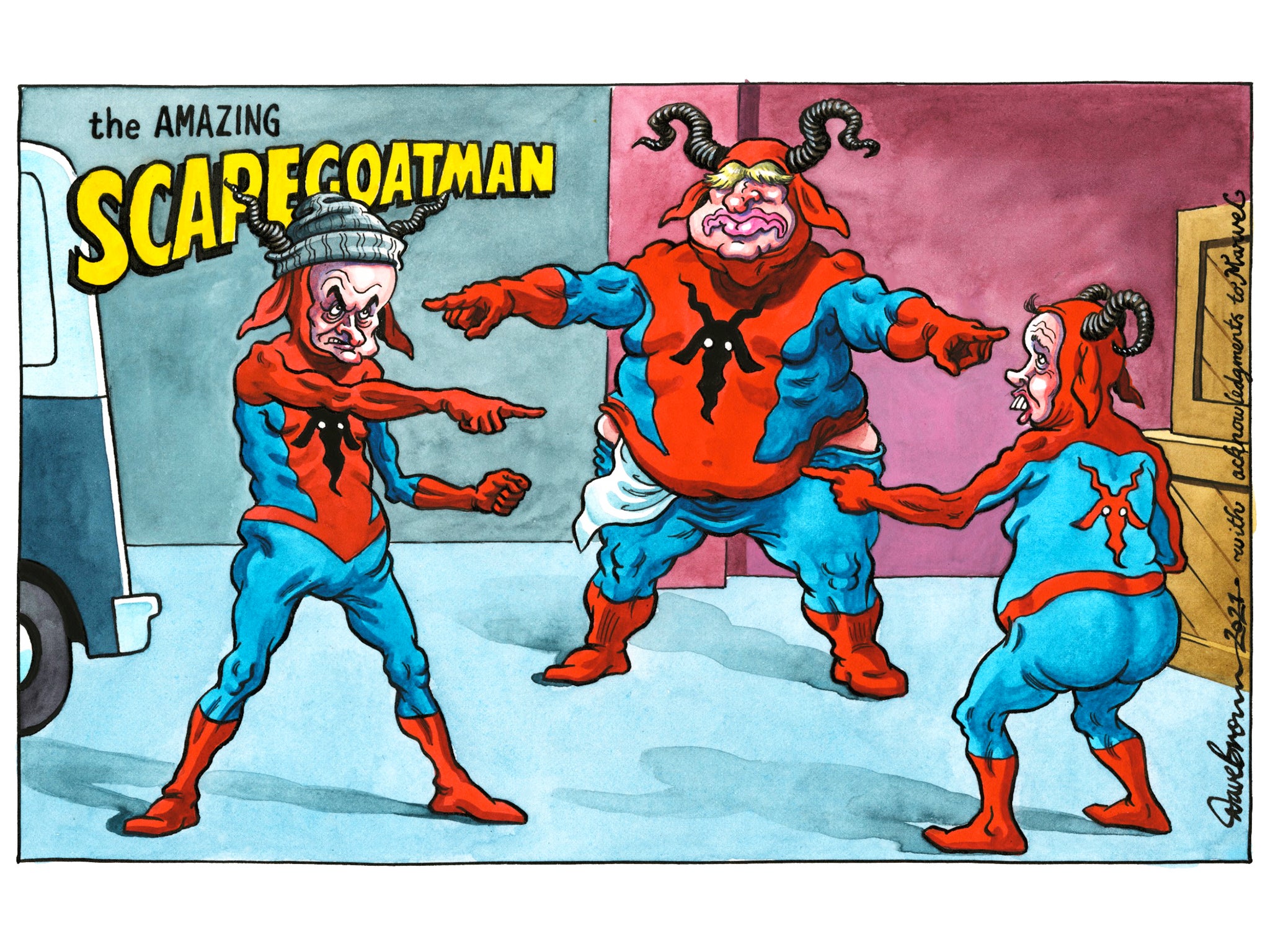‘We may have to wait’: Cummings has given the PM pause for thought about the end of lockdown
One innovation that could speed the unlock, despite the Indian variant, would be a ‘Covid passport’ – some kind of certificate of negative coronavirus status

Whatever damage his former adviser might have inflicted on Boris Johnson recently, Dominic Cummings might actually have done him a favour by forcing him to relive some of the many mistakes (and worse) that characterised much of the response of his government to the Covid crisis. In particular, Cummings’s confirmation that lockdowns were indeed imposed too slowly and relaxed too quickly should have given the prime minister some necessary pause for thought as the next great unlock approaches on 21 June.
Speaking to the television cameras from behind a mask – itself perhaps a visible signal of danger – Johnson repeated his familiar formula about there being no indication from the data that we have to deviate from the “roadmap”, but added an unfamiliar caveat: “but we may have to wait”.
After the recent farce of the local lockdowns that never were, the prime minister’s remarks perhaps betray some unease – if not chaotic indecision – about the menace of the Indian variant of the coronavirus. The threat is disguised, for now, by misleadingly low numbers of coronavirus infections, hospitalisations and fatalities.
Misleading, that is, in the sense that the Indian variant is capable of spreading at such a rate that these figures will soon rise in the usual exponential fashion – and there is now an upward trend in some of the data. In the spring and autumn of last year, the nation learned the hard way that if the authorities wait until the figures start to soar then it is already too late to take action, and that a harder, longer, more disruptive and depressing lockdown is the inevitable consequence.
It has become increasingly clear in recent weeks that this new variant of concern is more infective than the previous variants, is spreading rapidly within and beyond the hot spots, is becoming prevalent, and may well be outrunning the vaccination campaign. In particular, we now know that the Covid vaccines are much more effective against the Indian variant after a second dose. On that measure, the UK is far less well protected against the new variant than was assumed.
Hence, presumably, the prime minister’s unusual hint of caution about what will happen on 21 June. Indeed, he may also now start to worry about whether the last unlock ten days ago was entirely wise. Again, as with the failures last year, this is not a matter of hindsight; there were many voices warning against a too-hasty relaxation of the lockdown rules a few weeks ago, and, as a matter of fact, at every previous point at which they were being loosened.
The errors of judgement made over the past 15 months – which caused such unnecessary suffering and the loss of thousands of lives – were often made in real time, and the prime minister has to take responsibility for them. Dominic Cummings, to his credit, has already done so.
One innovation that could speed the unlock, despite the Indian variant, would be a so-called “Covid passport” – some kind of certificate of negative Covid status. This would provide any entertainment venue, shop or workplace with a much greater degree of Covid security. That, in turn, would reduce fear levels and get the punters back, with the minimum risk of increased transmission of the virus. The events that took place as research pilots – including football matches and concerts – demonstrated how high a level of safety can be achieved with such safeguards in place.
Whether through vaccination, previous infection or good luck, those individuals who can show they are Covid-negative through a reliable test should be able to enjoy more freedom than those unable to do so. It is discriminatory, but entirely fair; it would be absurd to offer the same access to events or venues to those who are Covid-positive, and unreasonable to grant it those who may be positive but who simply refuse (as is their right) to engage with a Covid certification programme.
In any event, the requirement to test negative before and/or after international travel will force the pace towards the adoption of de facto “internal” vaccine passports. For travel, leisure, the hospitality sector and the economy more widely, the Covid certificate could have as dramatic an effect as the vaccination programme.
The concern, which was made disturbingly clear in Michael Gove’s evidence to this afternoon’s Commons select committee, is that the debate within government about the Covid certificate is dragging on, perhaps as a result of the kind of catastrophic vacillation that we now know has paralysed No 10 and the Cabinet Office over the past year or more. There seems to be no urgency attached to the introduction of a Covid passport, which strongly suggests that the lessons of the past are not being learnt. It is almost enough to make one nostalgic for the days when Cummings was bullying the prime minister into taking decisions.



Join our commenting forum
Join thought-provoking conversations, follow other Independent readers and see their replies
Comments